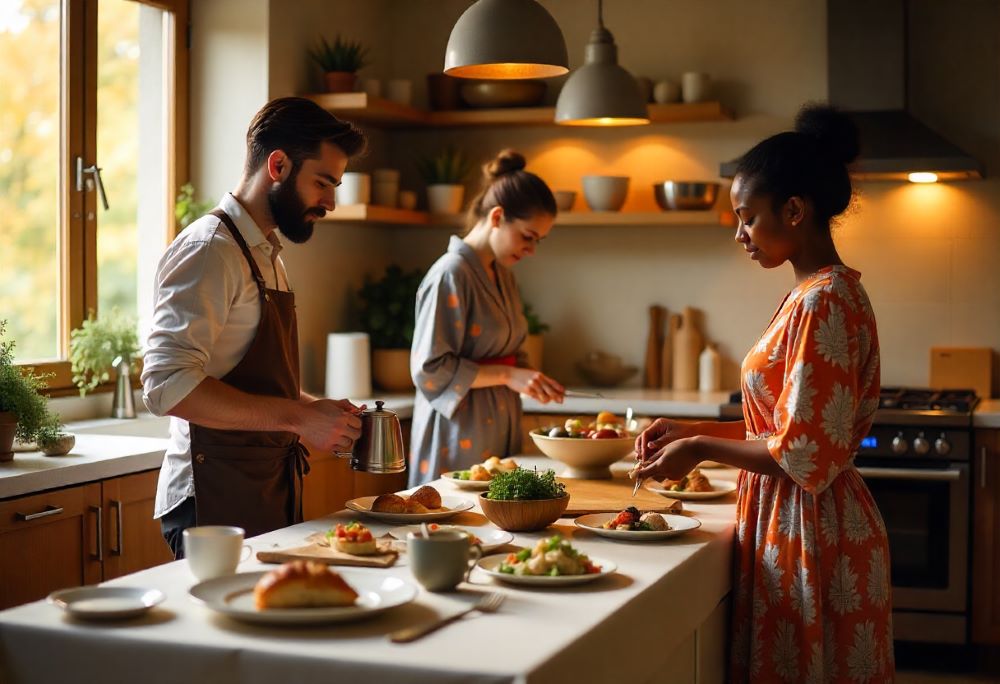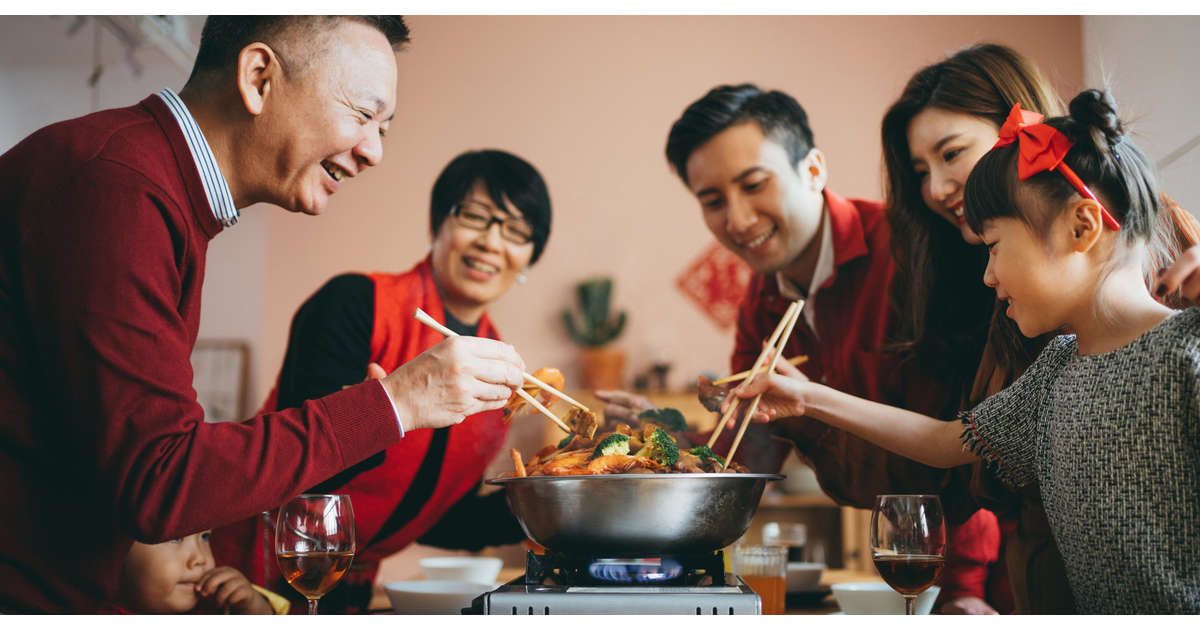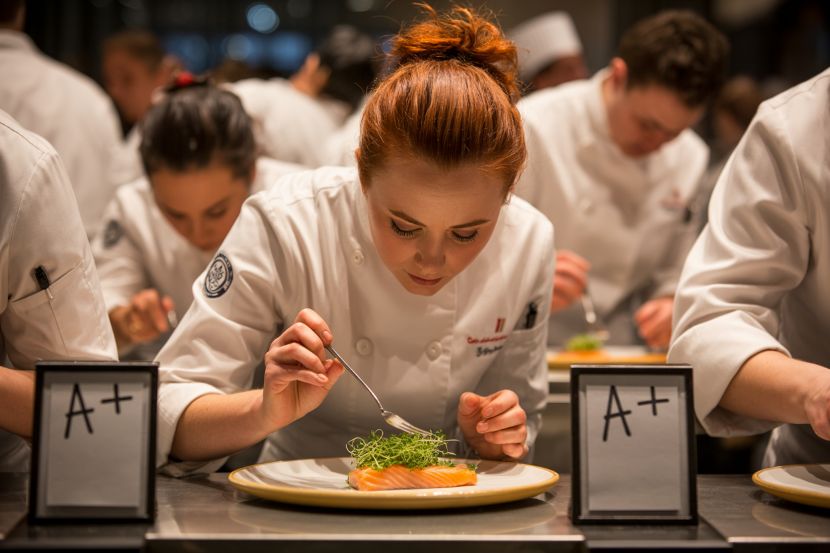Savor the Journey: How Culinary Adventures Are Redefining Holiday Homes in Asia Pacific for 2025

Published on
September 26, 2025

There is a growing tendency in food driven experiential travel in Asia as evident by the research conducted by Booking.com. The growth in demand is reshaping holiday homes. There is an evident shift from travelers just wanting to visit a new location to now wanting to engage with the food culture. Cooking classes and walking through the energetic food stalls is what today’s tourists are after.
Culinary Journeys: A New Era for Travel in Asia Pacific
The 2025 “Taste of Home Asia Pacific” study sheds light on how food has become a key driver of travel decisions. With over 8,000 travelers surveyed across Australia, New Zealand, India, Japan, South Korea, Thailand, Vietnam, and Indonesia, the research reveals fascinating insights into how food is shaping the future of tourism in the region.
In 2025, travelers are opting for holiday homes that provide them with the freedom to cook and experiment with local cuisine. With kitchen access and the ability to host meals in a private setting, these holiday homes offer a unique opportunity to connect with local culture through food. The growing popularity of this trend shows that food is no longer just a part of the experience—it’s now a central element of the journey itself.
Food-Centric Travel: A Major Influence on Accommodation Choices
The research highlights the significant role that food plays in shaping travelers’ decisions when choosing their holiday homes. A staggering 97% of food lovers reported altering their eating and cooking habits while traveling. Many travelers make it a priority to shop at local markets (85%), cook traditional dishes (34%), try new cooking appliances (33%), and even experiment with local recipes (34%).
For travelers in Australia, food is so influential that 79% say food plays a crucial role in their destination selection. Among these, 82% specifically choose destinations known for their vibrant food scene. This preference for food-centric experiences has led to an increasing demand for holiday homes that provide the flexibility to cook, dine, and socialize around food.
Exploring Local Markets and Culinary Festivals: A Must for Food Travelers
One of the most intriguing findings from the study is the growing trend of “trolley tourism.” Travelers are increasingly visiting local food markets, festivals, and supermarkets to deepen their culinary experiences. In Australia, 88% of travelers make a point of visiting local supermarkets or food markets when they go on holiday. This figure jumps to 96% among frequent holiday-home bookers.
The ability to explore local flavors and purchase fresh, authentic ingredients has become an essential part of the holiday experience. Whether it’s shopping at bustling food markets in Thailand or enjoying a food festival in Vietnam, travelers are eager to connect with the culture through its cuisine.
Portable Pantry: Bringing Home-Cooked Comfort on the Road
Another exciting trend revealed by the research is the rise of the “portable pantry.” Travelers are packing their favorite cooking tools and ingredients to bring a taste of home wherever they go. From spices and sauces to coffee machines and BBQ tools, 80% of Australians travel with their favorite food items. This trend is even more pronounced in other parts of Asia Pacific, with over 90% of travelers from countries like India, South Korea, and Vietnam carrying their cooking essentials.
This trend highlights the importance of feeling at home while on the road. For travelers, the ability to prepare familiar meals while traveling brings comfort and connection, making their holiday experience even more memorable.
Personalized Holiday Stays: Four Unique Culinary Travel Personalities
The research also identifies four distinct “holiday kitchen personalities” among travelers. These personalities reflect the different approaches to cooking and dining during a holiday stay:
- The Traditionalist: Prefers family recipes and comfort foods (38%).
- The Experimenter: Enjoys trying new recipes and exploring different cooking methods (34%).
- The Minimalist: Opts for simple and quick meals, focusing on convenience (42%).
- The Socialite: Enjoys communal cooking experiences, often gathering friends or family to cook together (34%).
These culinary personas offer valuable insights into the kinds of holiday homes that will appeal to different travelers. From homes with well-stocked kitchens to those offering communal cooking spaces, the demand for personalized, food-focused accommodations is growing.
Cultural Immersion: How Culinary Travel Is Changing the Tourism Landscape
The research underscores a broader trend in the tourism industry—cultural immersion through food. Holiday homes are no longer just places to rest; they have become hubs for cultural exchange. Travelers are looking for authentic experiences where they can connect with local culture through its culinary traditions. Whether it’s learning to make traditional dishes, exploring local markets, or attending food festivals, food has become the gateway to a deeper understanding of a destination.
As the popularity of food-driven travel continues to rise, destinations across Asia Pacific are capitalizing on this trend. By promoting local food culture and offering food-centric experiences, regions can attract travelers who seek more than just typical tourist attractions. For example, cooking classes in Bali, street food tours in Vietnam, or market visits in Bangkok are becoming key offerings for travelers seeking an immersive food experience.
Conclusion: A Flavorful Future for Holiday Homes and Travel in Asia Pacific
Asia Pacific is changing due to food-focused driven travel. For the culinary tourists, holiday homes are increasingly providing awning to unique food experiences. Modern tourists in search of “connection, comfort, and culture” are using travel destinations that provide well-equipped kitchens, food tours, community cooking spaces, and much more.
Food experiences are deeply cherished and with increasing demand, the tourism sector is changing drastically. Travel and business services who are able to recognize and to keep up with this demand, will have the first look of culture and food diversity of the Asia Pacific region.
link






